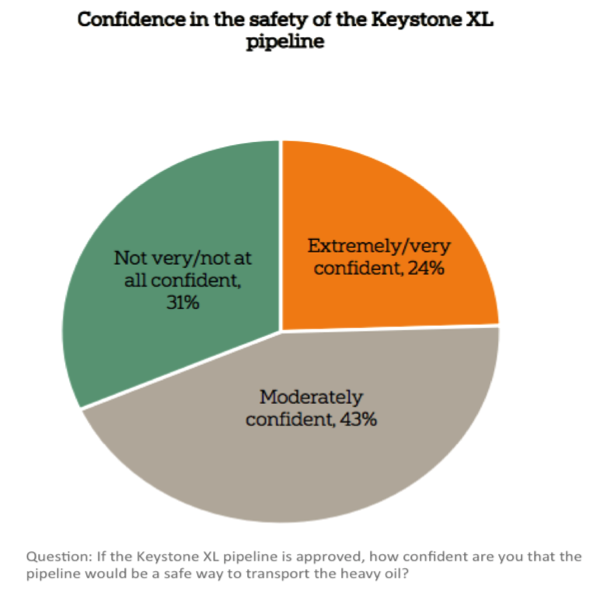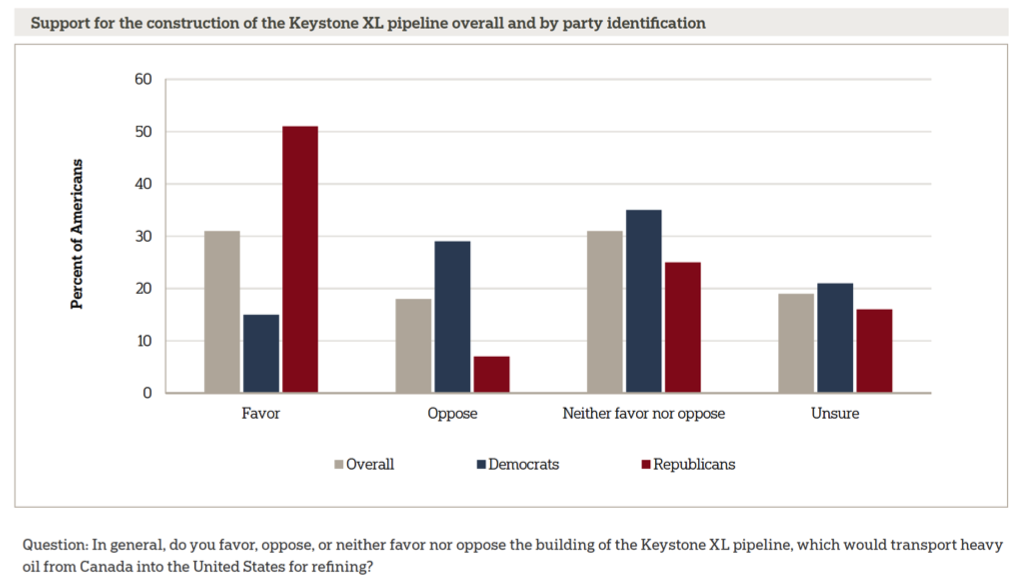Climate Note · Jan 8, 2015
Americans Split Over Keystone
As the new leaders of Congress try to pass legislation to approve the controversial Keystone XL Pipeline, a recent poll by the Yale School of Forestry & Environmental Studies and the Associated Press-NORC Center for Public Affairs Research finds that Americans are divided about the safety of the pipeline. Only about a quarter of Americans (24%) say they are extremely or very confident that it will be a safe way to transport oil, while 43% are moderately confident and 31% are not very or not at all confident it is safe. Democrats are more than twice as likely as Republicans to say they are “not very” or “not at all confident” that the pipeline would safely transport oil (43% vs. 19%).
Likewise, Americans are divided about whether the pipeline should be built. 31% of Americans say they favor the building of the pipeline and 18% oppose its construction. Meanwhile, half of Americans haven’t made up their mind: 31% say they neither favor nor oppose the Keystone XL pipeline, while 19% say they are not sure whether they favor or oppose it (19%).
Americans are split along party lines, with Republicans significantly more likely to support building the pipeline than Democrats (51% vs. 15%).
The Yale and AP-NORC Center survey of 1,578 adults was conducted online Nov. 20-Dec. 1, using a sample drawn from GfK’s probability-based KnowledgePanel, which is designed to be representative of the U.S. population. The margin of sampling error for all respondents is plus or minus 2.9 percentage points.
Respondents were first selected randomly using phone or mail survey methods and later interviewed online. People selected for KnowledgePanel who didn’t otherwise have access to the Internet were provided access at no cost to them.
Funding for the survey was provided by the Yale School of Forestry & Environmental Studies.

